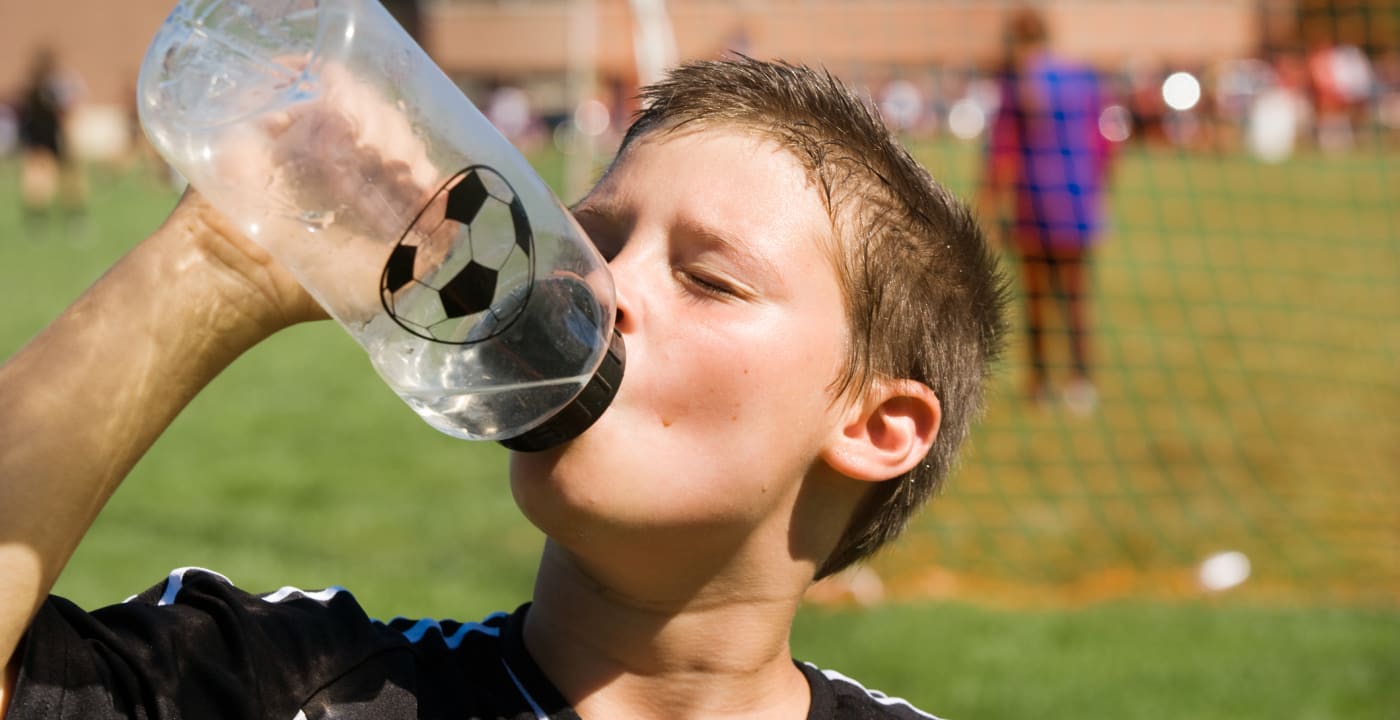Back to school: The care and feeding of student athletes

At a glance
- Carbohydrates are fuel for the muscles and key for peak performance in student athletes
- Kids who play sports should also stay ahead of their thirst with water
- Calcium and vitamin D are important for building strong, healthy bones
Making sure your kids eat right is important — especially when they participate in sports.
“When student athletes don’t eat properly, their performance suffers,” says Josh Purses, DO, a pediatric sports medicine specialist with MultiCare Orthopedics & Sports Medicine.
“Food is fuel,” says Lisa Lovejoy, MEd, RD, CSSD, CD, a sports dietitian at MultiCare Orthopedics & Sports Medicine. “It’s just as important in athletics as the warm-up, cool down and practice.”
Carbs are key
Many athletes believe the key to their success is protein. But protein is mostly important for helping muscles recover after activity. For peak performance, it’s carbohydrates that athletic bodies crave.
“Carbs are what athletes need,” Lovejoy says. “They are the fuel for the muscle. It’s amazing how little protein you need to do that work.”
“In many sports leanness is emphasized,” Dr. Purses says. “This often leads to athletes reducing their carbohydrate intake; then their performance suffers.”
This doesn’t mean student athletes need to live on bread and pasta alone. Carbohydrates come in many forms — from whole grains to vegetables — so choosing a variety of foods that contain carbohydrates can help them get the balance they need.
Water does a body good
Kids who play sports need to stay hydrated, especially when they are working hard during a game or match. And they shouldn’t wait until they feel thirsty before they take a drink.
“You need to drink ahead of your thirst,” Dr. Purses says.
He recommends at least eight cups of fluids a day — and likely more if your athlete is playing a strenuous sport for longer than one hour at a time.
What should they be drinking? Water is always a good choice. Sports drinks are also recommended for athletes working hard for more than an hour. Avoid energy drinks that only deliver a load of caffeine or drinks that contain herbal “supplements.” Herbal supplements of any kind are not recommended for children and teens at all.
“Supplements are not FDA regulated,” says Dr. Purses. “You don’t really know for sure what’s in them.”
“We do not advise people under 18 to be consuming supplements, like creatine,” says Lovejoy. “There is simply not enough research done to know if they are harmful to kids.”
Don’t forget their bones
Muscle strength and cardio endurance are important for good sports performance. So are strong, healthy bones — especially for kids, whose bodies are still developing.
“At that age range, you’re building a lot of bone mass for the future,” Dr. Purses says.
Calcium and vitamin D are important for building bones. Athletes who don’t get enough can suffer loss of bone mass and stress fractures. Student athletes should be getting around 1,300 milligrams of calcium a day up to age 18, according to Lovejoy. This is especially important for female athletes at this age, who also need extra iron because they are at a greater risk for iron deficiency.
Send the right messages
Kids and teens who play sports sometimes feel pressured to have the right “look” for their sport. This can lead to poor food choices. So it’s important for coaches and parents to send positive messages to their athletes about body image, eating right and being healthy.
“Coaches and parents have a huge impact,” says Lovejoy.
Luckily, there’s nothing complicated about helping your student athlete eat right.
“There aren’t any miracle foods out there,” Dr. Purses says. “It’s all about getting a good variety.”



